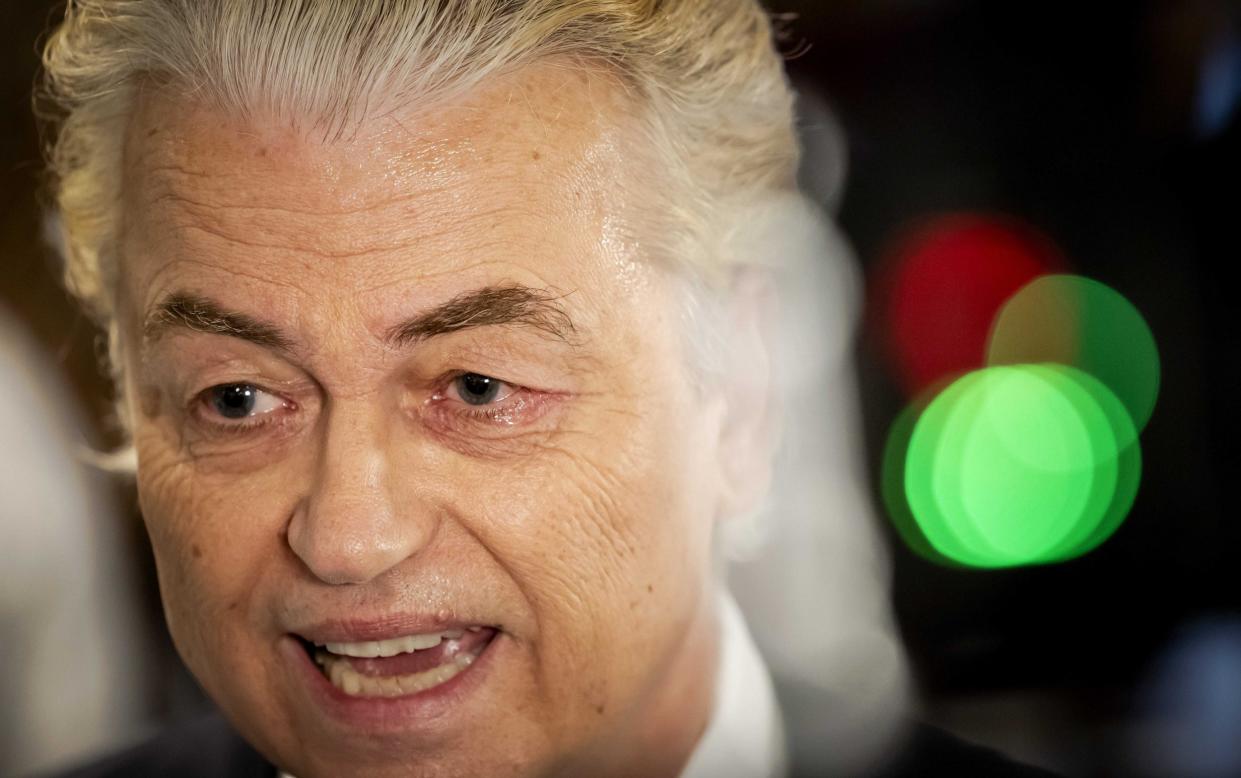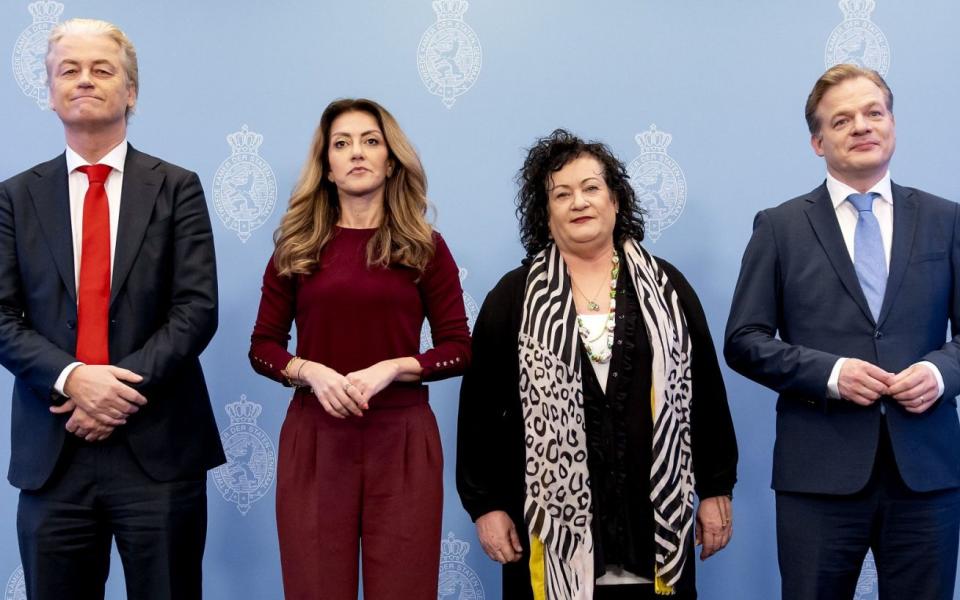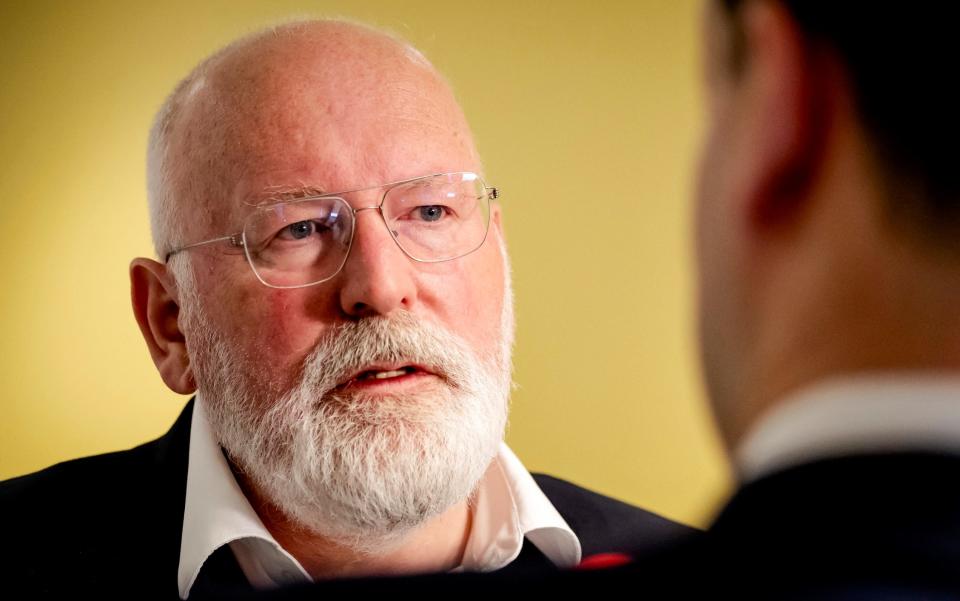Dutch far-Right government set for immigration showdown with EU

- Oops!Something went wrong.Please try again later.
- Oops!Something went wrong.Please try again later.
Geert Wilders said that he would implement the Netherlands’ “strictest-ever” migration policy, as the new Dutch government pledged to quit EU asylum rules, on Thursday.
The plan to opt out of the European laws has put Mr Wilders’ incoming four-party Right-wing coalition government on a collision course with Brussels before it has even taken office.
The firebrand, notorious for his fiercely anti-Islam rhetoric and calls to ban the Koran, won a shock victory in a general election six months ago.
It took until Wednesday before negotiations with the pro-business VVD, the “radical centrist” New Social Contract, and the BBB farmers’ party ended with agreement on a plan for government.
“The sun will shine again in the Netherlands,” Mr Wilders, the founder and leader of the Freedom Party (PVV), said.
“I think that anyone who reads the agreement between us four will see that a lot is going to change in the Netherlands,” he added and predicted “the strictest asylum policy ever”.

He said there would be a two-year asylum crisis act to drive down numbers arriving in the Netherlands.
The government plans call for a maximum reduction in migrant numbers without giving a hard figure. The agreement includes austere reception centres, a hold on processing asylum applications and only temporary asylum being granted.
“An opt out clause for European asylum and migration policies will be submitted as soon as possible to the European Commission,” the coalition said in its pact.
Mr Wilders said the plan would make the Netherlands less attractive for asylum seekers, adding that “people in Africa and the Middle East will start thinking they might be better off elsewhere”.
The coalition says it would also strive to limit free movement for people from countries joining the EU in the future.

Frans Timmermans, the former EU climate chief and leader of the opposition GreenLeft–Labour party, said the pact was “disastrous”.
Mr Wilders, an ardent eurosceptic, was forced to ditch a campaign promise to hold a Brexit-style Nexit referendum and sacrifice his hopes of being prime minister to get the deal over the line.
The prime minister has not yet been named but the leaders of the other parties are also ruled out.
One name being mentioned is Ronald Plasterk, a former Labour minister who chaired an earlier round of coalition negotiations.
‘Truss lettuce’ stands for prime minister
However, some commentators are sceptical that the new government will last. One podcast, inspired by a British newspaper stunt over Liz Truss’s ill-fated premiership, has already set up a lettuce in competition with Mr Plasterk to see which lasts longest.
The Netherlands joins Hungary and Poland’s previous nationalist government in challenging EU migration policy.
Brussels will resist, as EU countries have already agreed on their migration pact and opt outs are usually discussed in the negotiating phase.
“We have a new pact on migration and asylum, which has been voted upon and confirmed and therefore has to be applied,” the European Commission’s chief spokesman said in Brussels.
“This legislation will be applied and the commission will play its role in making sure it is.”

